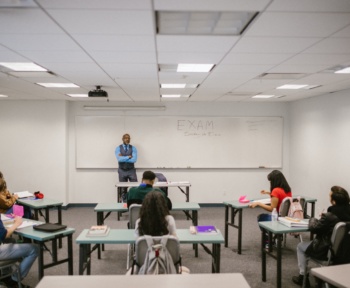Education and immigration consultants have come under scrutiny for potentially misleading international students by falsely conveying that enrolling in Canadian post-secondary institutions guarantees a straightforward path to obtaining permanent residency, according to warnings from senators and immigration experts.
In a report titled “Enhancing the Credibility of Canada’s International Student Program,” senators Ratna Omidvar, Hassan Yussuf, Sabi Marwah, and Yuen Pau Woo have raised concerns about the insufficient number of available permanent residence (PR) opportunities to accommodate the increasing influx of international students choosing Canada.
The report underscores the need for Ottawa to maintain the competitiveness of the PR application process, ensuring that it selectively admits the most qualified international students. Additionally, it urges the Canadian government to curtail the practice of education consultants (who receive government funding to recruit foreign students) from overhyping the ease of obtaining a Canadian work permit after graduation.
This caution is prompted by instances where students were inadequately informed about the implications of attending non-Designated Learning Institutions (DLIs), which led them to come to Canada with hopes of securing a post-graduation work permit (PGWP). In some cases, students were lured to the country through fraudulent letters of acceptance (LOAs) or enrolled in programs that did not qualify for a PGWP.
The report emphasizes that programs offered by public institutions must meet specific criteria for international students to qualify for a PGWP, while those offered solely by private institutions are ineligible for PGWPs altogether. International students who rely on agents often remain unaware of these intricacies, only discovering the limitations when it is too late.
According to Immigration Minister Marc Miller, international students are valuable assets for Canada’s future; however, there is a need for stricter regulation of immigration consultants who offer false promises to prospective students.
The report assigns blame not only to consultants but also to the federal government for perpetuating unrealistic expectations among international students. It suggests that while the Canadian government accurately highlights the immigration benefits of studying in Canada, it could be more forthright about the highly competitive nature of the permanent residence application process.
Projections from Immigration, Refugees, and Citizenship Canada (IRCC) indicate that the annual number of foreign student applications to Canada could reach 1.4 million by 2027, as outlined in an internal policy document.
A 2021 survey conducted by the Canadian Bureau for International Education found that 73 percent of respondents planned to apply for post-graduation work permits, with 59 percent aspiring to achieve permanent residence.
However, the senators’ report emphasizes that not every international student will be able to realize their aspiration of staying in Canada after graduation. While there is a cap on the number of permanent residents admitted to the country annually, no such cap exists for temporary residents, including workers and students.
Senator Omidvar has stated that it is the federal government’s responsibility to communicate directly with foreign students regarding the conditions for working and staying in Canada, countering the “misinformation” disseminated by education consultants. She suggests that a letter accompanying the visa issuance could serve this purpose effectively.


